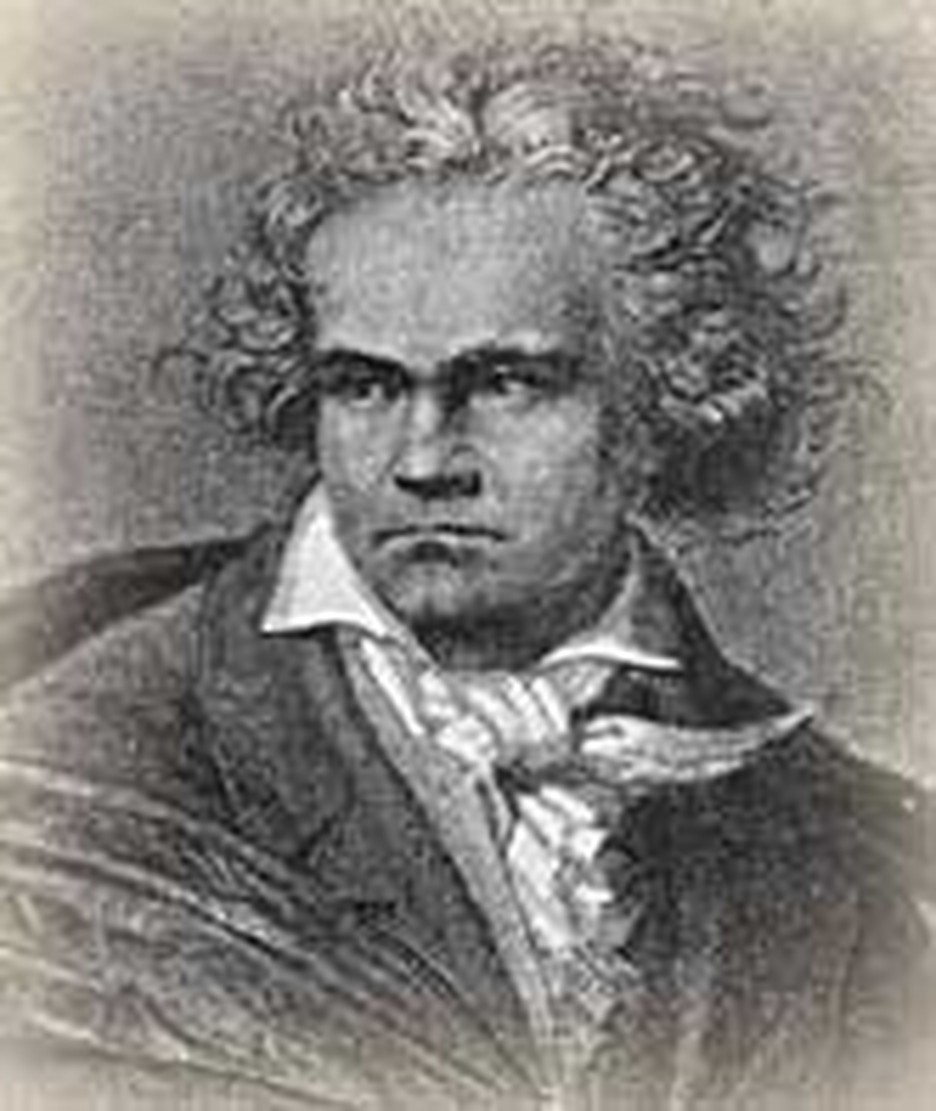
My chief aim when I was composing this grand Mass was to awaken and permanently instill religious feelings not only into the singers but also into the listeners," wrote Ludwig von Beethoven.
The Missa Solemnis (Solemn Mass) premiered on this day, April 7, 1824* in St. Petersburg, Russia. It is one of the greatest pieces of religious music ever written.
Beethoven wrote it with his usual attention to detail. Originally he planned it to celebrate the consecration of his favorite pupil who had been named archbishop of Olmutz (a city now in Czechoslovakia). This was Rudolph, Archduke of Austria, who studied with Beethoven for fifteen years. Beethoven wrote to Rudolph, "The day on which a High Mass composed by me will be performed during the ceremonies solemnized for Your Imperial Highness, will be the most glorious day of my life; and God will enlighten me so that my poor talents may contribute to the glorification of that solemn day."
Unfortunately, the mass was far from done on Rudolph's consecration day. It would take Beethoven another two years to complete the work.
Meanwhile, he engaged in sly dealings to raise money. He took a sizable advance for the mass from one music publisher. Shortly afterward, he entered negotiations with other publishers for more money. At the same time, he offered manuscript copies to European courts, again for considerable sums of money.
He owed Prince Nikolai Galitzin several string quartets. But Beethoven put them on hold while he labored on the mass. He did eventually compose the quartets for Galitzin, but in the meantime, he sent him a copy of the mass. Galitzin was delighted with the work.
"It was with inexpressible joy, dear sir, that I received the Mass that you recently composed...I am trying to get the work performed in a manner worthy of its creator..." He arranged its performance as soon as he could, and that is why the work premiered in St. Petersburg.
It was the only full performance in Beethoven's lifetime (bits of it were played in other concerts). Had he been able to attend, he could not have enjoyed it, for only the loudest noises penetrated his deaf ears.
Although a Catholic in name, Beethoven seems to have really believed instead in the distant God of the Deists. His favorite religious quote, posted under glass at his work table, was taken from the temple of an Egyptian goddess, and sounds pantheistic, as if God were indistinguishable from his creation: "I am that which is. I am everything that is, that was, and that will be. No mortal man has raised my veil. He is of himself alone, and it is to this aloneness that all things owe their being." Nonetheless, the Solemn Mass captured the moods of faith as few other works ever have, especially in its lovely "Sanctus."
*Russia had not yet changed its calendar to agree with the rest of Europe, so the Russian date was in March.
Bibliography:
- Beethoven, Ludwig von. Missa Solemnis. Various recordings.
- Cooper, Barry. Beethoven Compendium. Thames and Hudson, 1991.
- Drabkin, William. Beethoven: Missa Solemnis. Cambridge: Cambridge University, 1991.
- Schindler, Anton Felix. Beethoven as I Knew Him. University of North Carolina Press, 1966.
Last updated June, 2007



